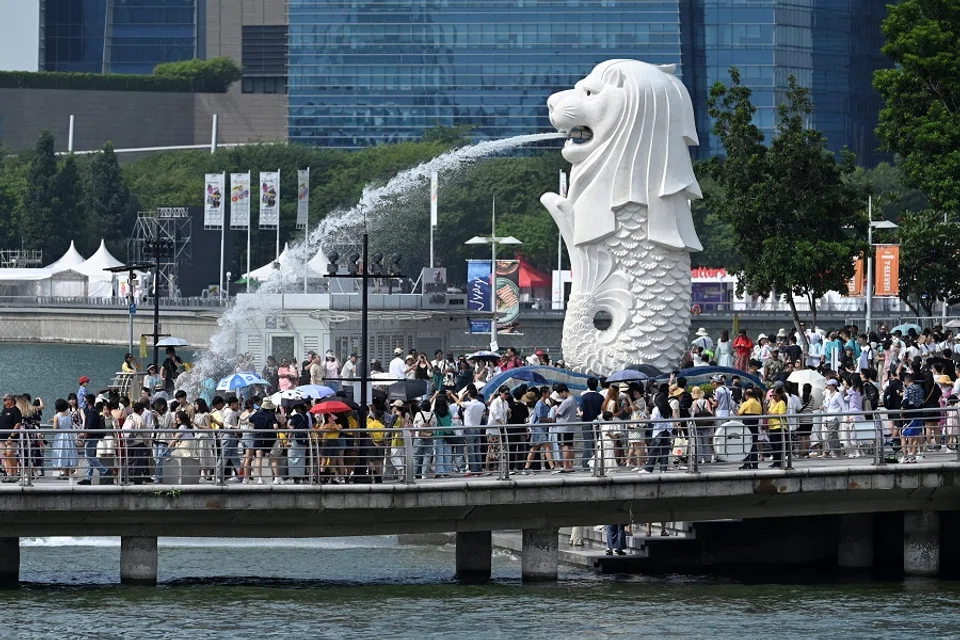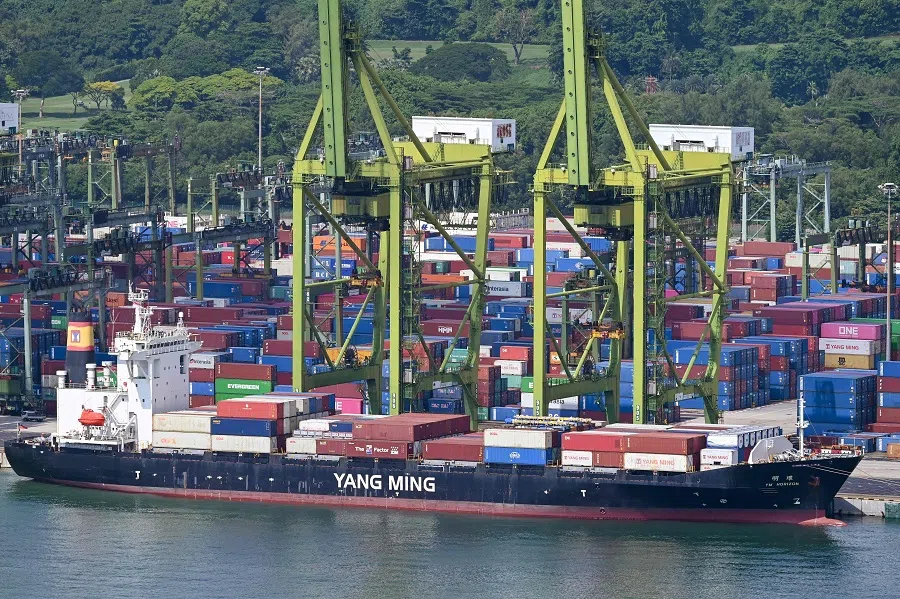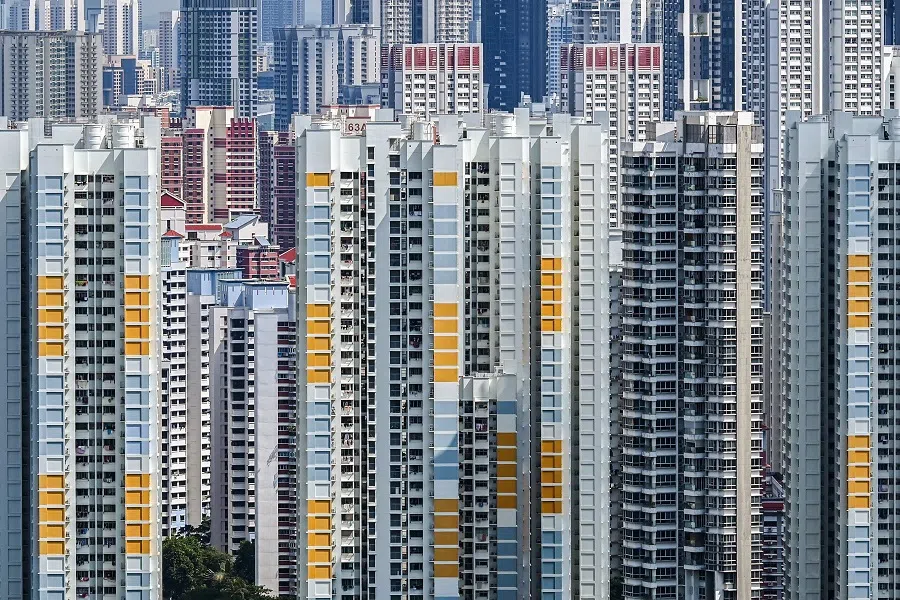Same ethnicity, different realities: A Chinese experience in Singapore
Financial writer Alice Ban offers her perspective on the differences between Singaporeans and Chinese from China, focusing on their thinking, working cultures and habits, as well as the issue of integration.

In contemporary movies and novels, Singapore is often portrayed as a distant destination where Chinese people go primarily to seek financial opportunities. Fan Liuyuan in Eileen Chang’s novella Love in a Fallen City, and Chow Mo-wan in Wong Kar-wai’s film 2046, both headed to Singapore to make a living before returning to Hong Kong — nearby Hong Kong is where the story unfolds, while Singapore is but a far-off legend, a background to elevate the mystique and capability of the male lead.
Over the past year or two, following the pandemic, Singapore has gained more prominence. Once more, a trend of “going south to Nanyang (Southeast Asia)” is stirring among the Chinese.
A society of ‘strangers’ and ‘familiar people’
To Europeans and Americans, Singapore is the easiest country for them to live in Asia, as nearly everyone in Singapore speaks English; and given that 75% of its population is ethnic Chinese, Singapore is also the easiest foreign country for the Chinese to live in. Perhaps the biggest issue that people from China living in Singapore would have to tackle is how to overcome “boredom”.
On the surface, working in Singapore resembles a Western “society of strangers”, where any two people with name cards and business needs can easily collaborate. The city-state is highly cosmopolitan and welcoming to foreigners, with a government that is approachable, business-minded and supportive of foreign organisations.
On the other hand, Singapore is a “society of familiar people”, as tiny as it gets. In Singapore, what one says and does — good or bad — easily spreads through social circles, or even the entire country. Keeping one’s nose clean and maintaining one’s reputation is crucial for working or running a business.
This reflects a local, grassroots-based society, with its own relatively isolated circle where people tend to interact with those they know. Social principles and behavioural norms here are different from those in a modern urban society made up of strangers.
A newcomer from China might find Singapore’s business environment surprisingly straightforward, even primitive.

A newcomer from China might find Singapore’s business environment surprisingly straightforward, even primitive. The way Singaporeans do business can seem clunky, without any fancy marketing or operations; Singaporeans are simple and direct in dealing with people. An article in Lianhe Zaobao in early 2024 highlighted an international survey revealing that Singaporeans top the global list for the total amount lost to scams, indicating that they are among the easiest targets for fraud.
Given the absence of a language barrier, many Chinese newcomers arrive in Singapore with high expectations, anticipating rapid success in capturing market share and attracting customers. However, they soon discover that, despite the straightforward business environment, failing to integrate into local social networks, adhere to local customs and earn the trust of Singaporeans can hinder their ability to adjust and grow their business. Singapore operates with a kind of “autoimmunity” to aggressive or unconventional business tactics; locals are resistant to radical approaches.
... Singaporeans do not face as much pressure at work, in stark contrast with the “involution” the people in China face at work now.
When ‘involution’ meets ‘chill’
Because the government offers much welfare and protection — especially in affordability of buying homes and protection of job opportunities for locals — Singaporeans do not face as much pressure at work, in stark contrast with the “involution” the people in China face at work now.
Involution is a term that has gained popularity in recent years in China, referring to man-made factors that create and increase stress. In Singapore, the trend is the antonym: chill. At a business event shortly after I came to Singapore, I heard managers from Alibaba say that their intense “996” work culture quickly “became defunct” soon after they were posted to Singapore.
Many Chinese firms see Singaporean employees as difficult to manage — “quick to resign once there is any disagreement”, because they are not at all worried about finding the next job. Singaporean employees usually have all sorts of leave; even before they join a company, they ask to work from home two days per week to take care of their children. So, there is a strong clash between the anxiety of the Chinese and Singaporeans’ chill.
Yet for the Chinese entrepreneurs coming to Nanyang, there is a strong drive to export their own business practices and challenge Singapore’s more relaxed working pace, even if it is not as intense as the 996 work culture. They often introduce tactics such as aggressive promotions, price wars, loyalty programmes, and gaining customers through traffic. You can easily tell if the head of a business is Chinese from the way they operate.
Even people from China who have been in Singapore for ten to 20 years and are naturalised still only mingle among their own circle.

Besides business culture, in the past year, the card game guandan (掼蛋) has spread among Chinese residents in Singapore even more rapidly than the coronavirus, with long-term residents deeply engaged in what can be called “guandan diplomacy”.
A decade ago, marathons became a craze in China, with cities competing to host events and China Vanke’s chairman Yu Liang making headlines for leading his employees in a marathon. That trend has since faded, replaced by the rise of guandan among Chinese circles.
This shift reflects a broader change in mindset over the past decade, from striving to surpass limits to seeking distraction through entertainment. Many recent arrivals from China in Singapore have ample free time, creating a perfect environment for guandan to thrive. The game provides an easy way to bond, bypassing the potential awkwardness of small talk.
However, because of their background and the obstacles to cultural exchanges, the influence of people from China in Singapore remains largely confined to their own circle. Even people from China who have been in Singapore for ten to 20 years and are naturalised still only mingle among their own circle. Perhaps the biggest influence the Chinese have on Singapore would be the use of social media and shopping apps such as TikTok and Lazada.
One can work and do business with Singaporeans, but cultural differences often hinder the development of deeper personal relationships, such as friendships where one might invite others out and spend time together. While Mandarin is not a barrier, the underlying thought processes and mentalities are quite different.
Singaporean men share the same unique characteristics as Singapore
About six months after I came to Singapore, I was asked to give my take on Singaporean men. Without much thought, I responded that Singaporean men are just like Singapore: neither exceptionally good nor bad. Simply put — unexciting. When a foreigner like me says this in front of Singaporean men, they all laugh heartily without denying it. Yes, we are a bit boring, and good-tempered to a fault.
Just as we see Singaporeans as unexciting or even boring, they probably have their own opinion of us Chinese from abroad. But Singapore has long gotten used to cultural tolerance; you would never see a Singaporean openly criticise the influx of foreigners too much. They are willing to interact with you, observe you, and then decide whether or not to do business with you.
Too many Chinese are eager to integrate into Singapore, but this so-called integration is often driven by pragmatic goals, such as obtaining permanent residency or citizenship...

On the one hand, we attempt to influence local culture, while on the other hand, we desperately want to integrate. What many Chinese people most desire in Singapore is to attain a local identity.
The loss of identity is a major source of anxiety for Chinese new arrivals. Too many Chinese are eager to integrate into Singapore, but this so-called integration is often driven by pragmatic goals, such as obtaining permanent residency or citizenship, rather than a genuine acceptance of the country’s culture and a willingness to put down roots for the long term.
This mirrors the role of religion in Chinese culture: Chinese Buddhism is often approached in a utilitarian way, with rituals like burning joss sticks seen more as means to fulfill wishes rather than acts of penance. Similarly, Chinese individuals in Singapore who seek citizenship may pay taxes, volunteer, purchase pension insurance and engage in charity not out of genuine commitment, but as strategic steps toward integration. Yet many Chinese parents are far more resistant to the idea of their sons doing military service than they are enthusiastic about acquiring citizenship.
However, Singaporeans’ inclusivity has led us to believe that we are integrated, particularly after receiving citizenship. In fact, the Chinese have continued to do things based on their own thinking, to the point where many can only do business with other Chinese people while acting like they have experience — teaching other Chinese people who are new to Singapore how to quickly integrate and get things done here, all while earning money and gratitude along the way.
All ethnic Chinese, yet with different perspectives — integration is the slogan, while having differences is the everyday reality...
Some might say that Singapore is a commercial society to begin with, and the government also handles relationships like a businessman. Yet when it comes to business, Singapore has often said no.
Take the finance industry — despite the influx of funds in recent years, Singapore continues to impose restrictions on financial license applications and their scope, regulate business expansion, enforce stringent anti-money laundering measures and implement controls on family offices. In contrast, Hong Kong’s regulatory environment is comparatively more relaxed.
There is a saying online that Hong Kong is like a jungle, where you must be sufficiently strong and agile to survive; Singapore is like a zoo, and to survive, you must express your loyalty to the zookeepers. This aptly describes the difference in mentality between both places when it comes to oversight. All ethnic Chinese, yet with different perspectives — integration is the slogan, while having differences is the everyday reality.
Of course, if we had not come to Singapore, we would not have witnessed the diversity in the Chinese-speaking world. Only when we are away from our homeland can we see ourselves clearly.
This article was first published in Lianhe Zaobao as “碰撞与融入——谈中国人在新加坡”.





